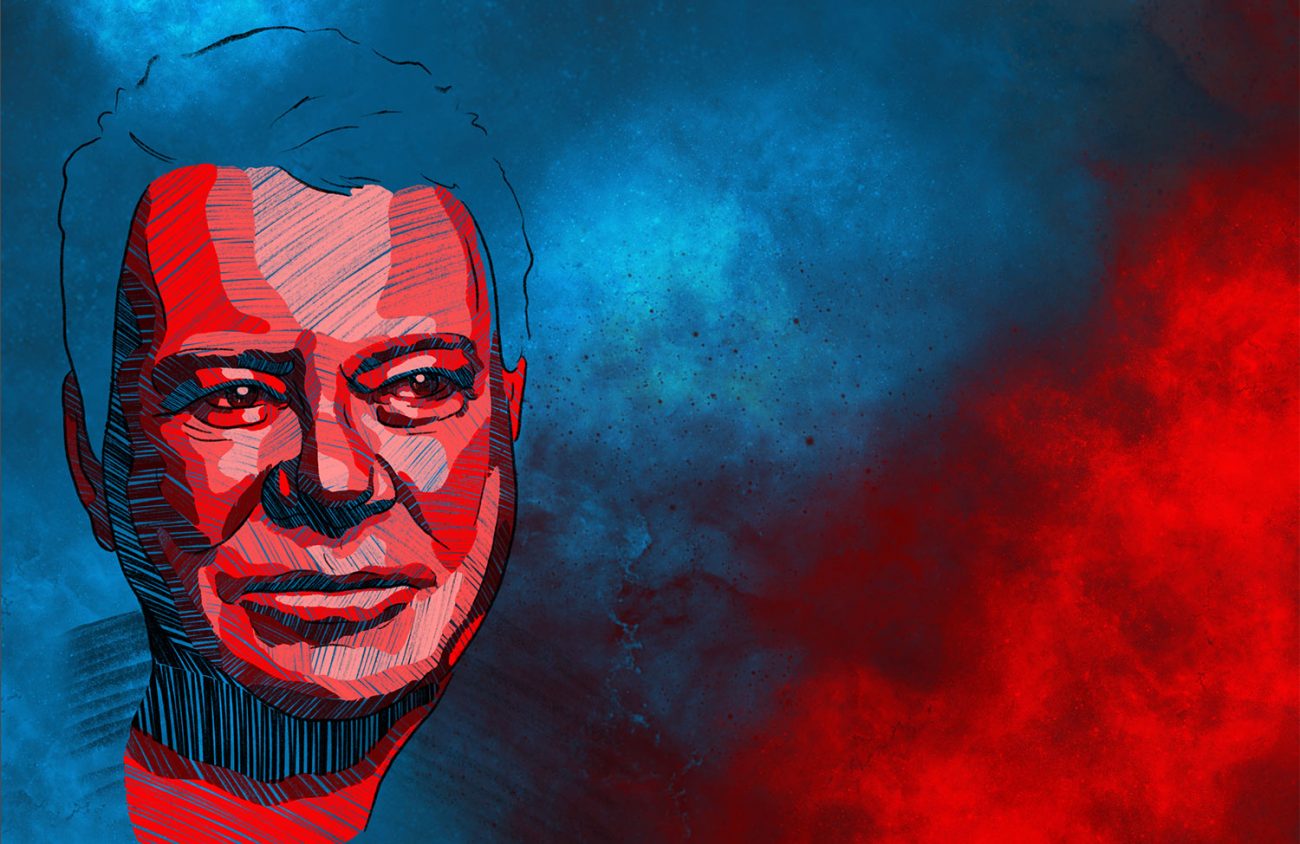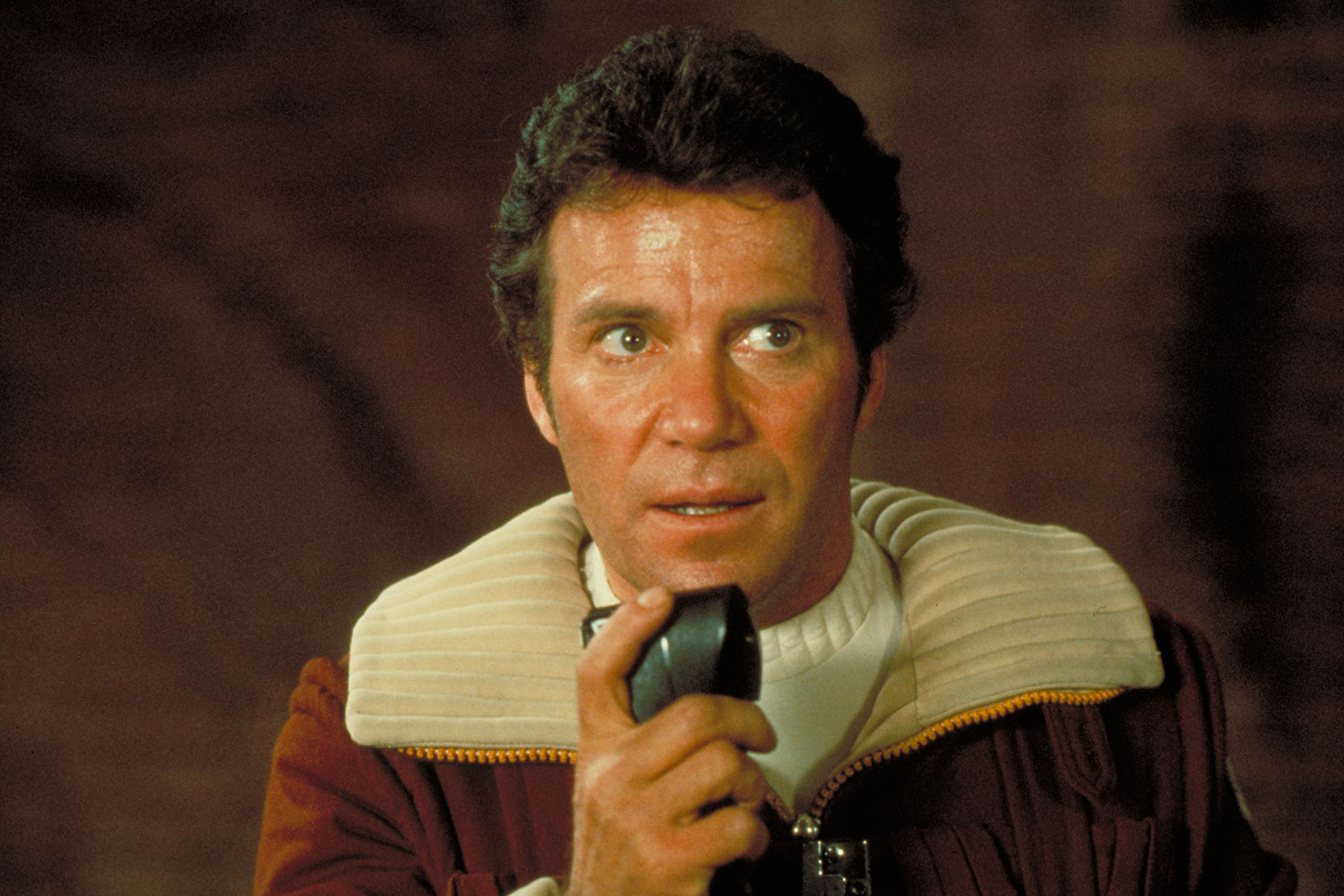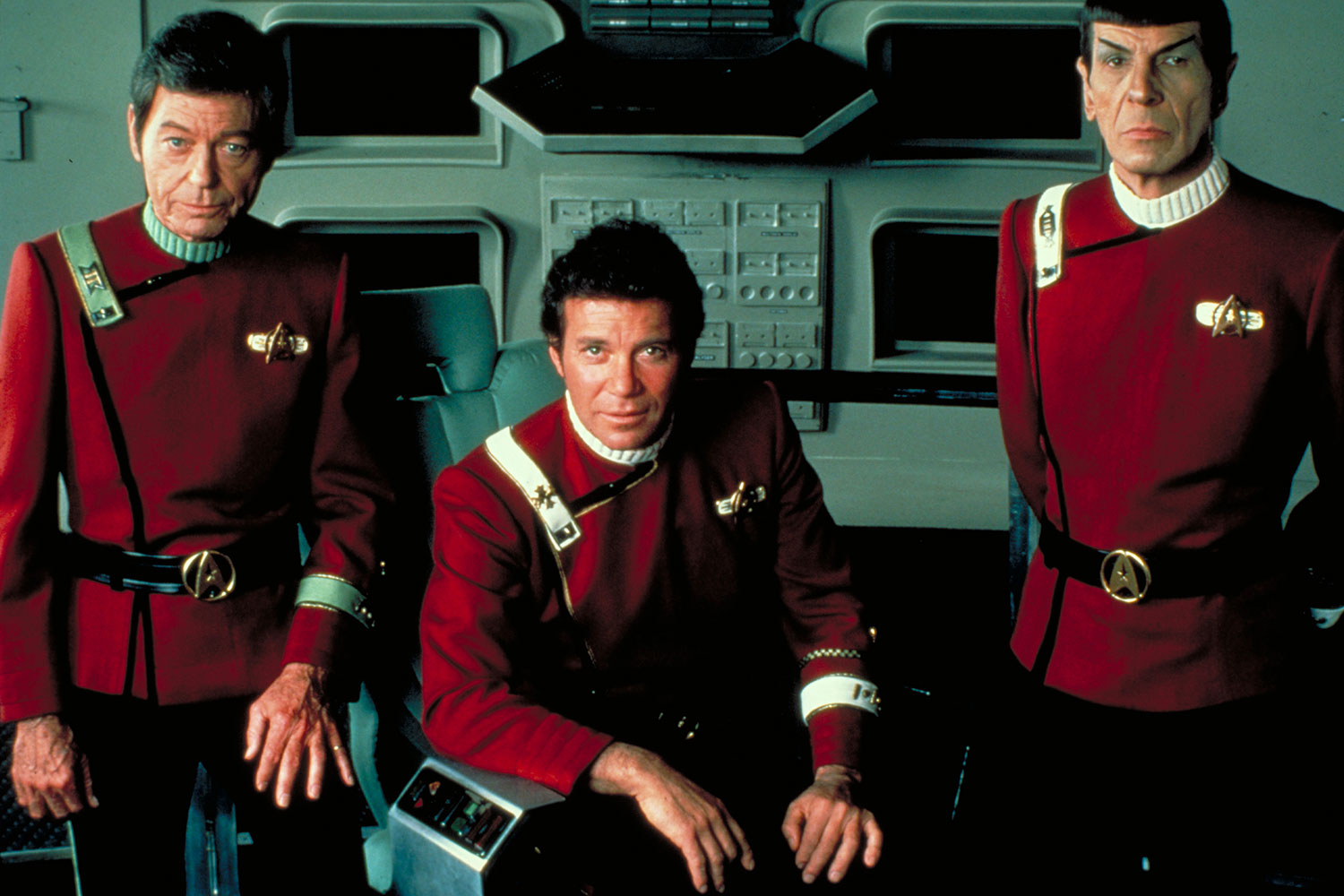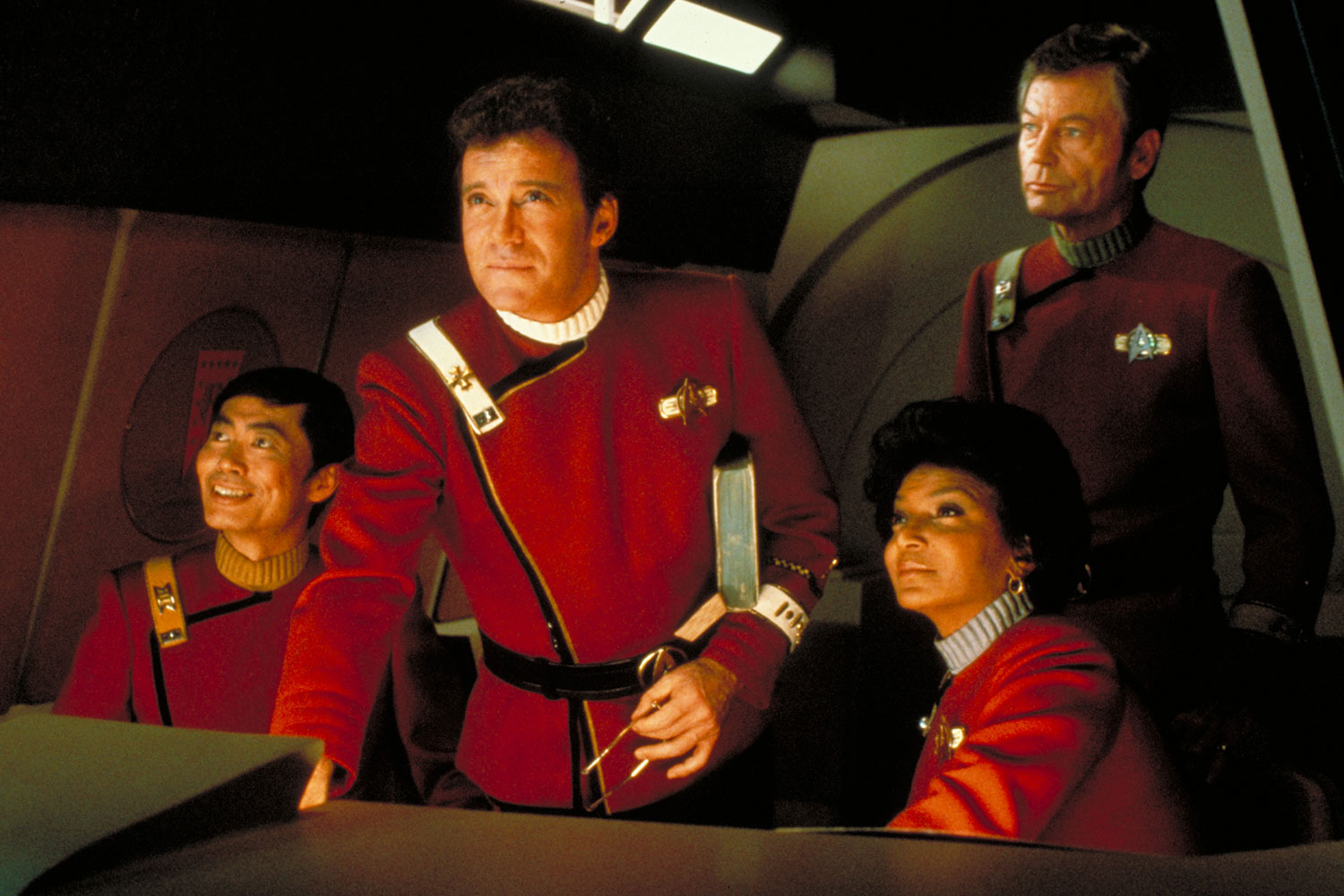I grew up thinking the Star Wars saga was far superior to Star Trek. The realization of how wrong I was marked the moment I matured.
I didn’t come to my senses because of Chris Pine in the awful Star Trek reboots. I was interested in exploring existential and ethical questions put forth by the TV series. I wanted to explore Star Trek’s creator Gene Roddenberry’s vision of what might happen if humanity came together to explore life forms throughout the universe.
One actor from the series stuck out for me: William Shatner.
I read his books. I listened to his albums (Has Been was probably the best thing that Ben Folds, who produced it, ever did in his life). Hell, I even buy my airline tickets and hotel rooms from Priceline, because he’s the “Priceline Negotiator.”
It makes sense, then, that when Shatner decided to come to Eugene I, a Shatnerite, was the Eugene Weekly staffer who jumped at the chance to interview him during the media blitz for his ongoing Star Trek II: Wrath of Khan tour.
Shatner, who’d just turned 88 a few days before EW interviewed him, has been taking what is considered one of the greatest Star Trek films on the road and following it up with an hour-long audience Q&A.
As I prepared for our interview, I wondered how it would go — especially whether I’d be able to contain myself professionally without becoming a stereotypical Trekkie.
Enlarge
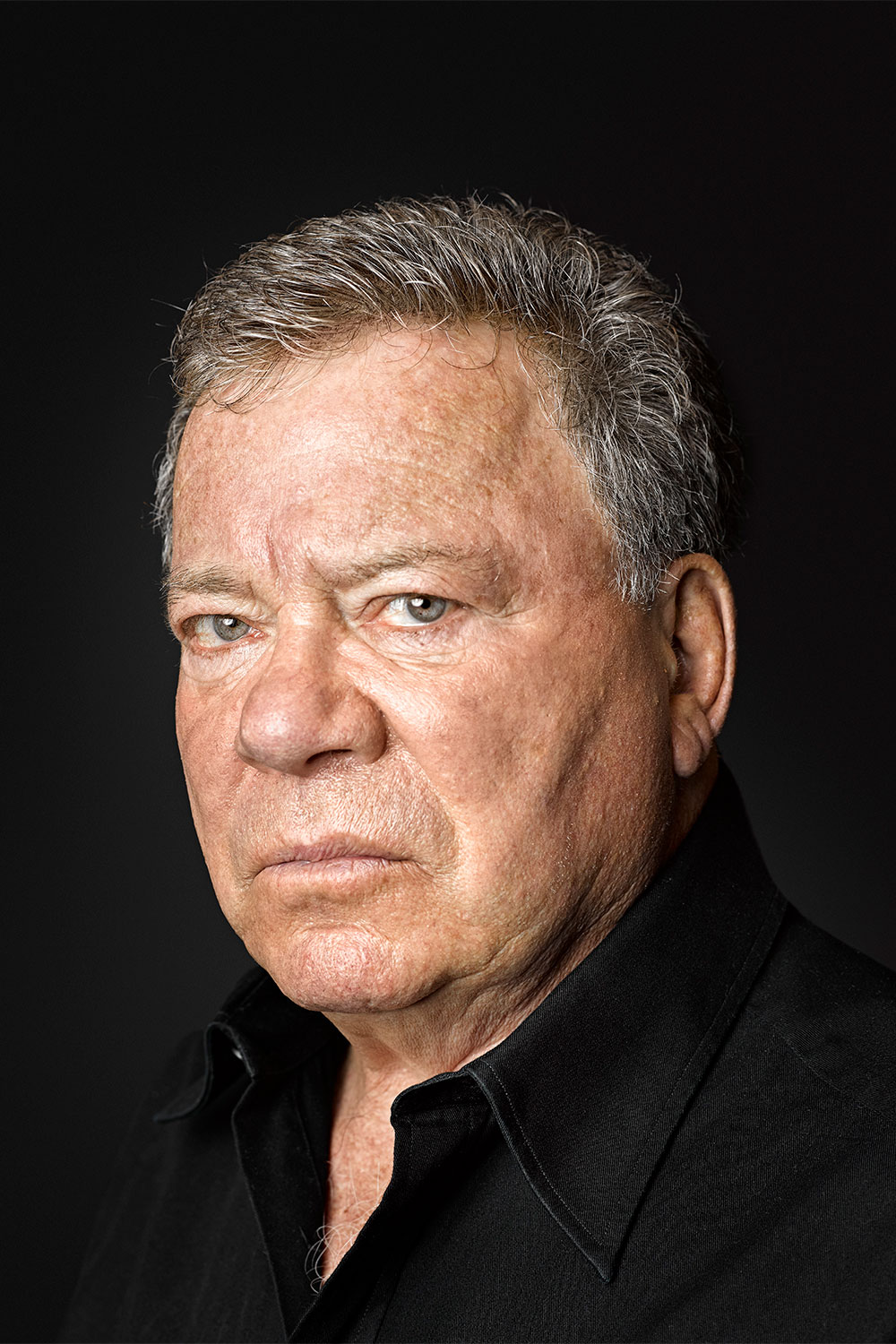
Photo by Rory Lewis
I recall reading Up Till Now: The Autobiography about how tough it was for Shatner when he was becoming a professional actor. He trained as a Shakespearean actor, but once he got on TV as Capt. James Tiberius Kirk of the USS Enterprise, many forgot his thespian ways.
His TV cameos have him riffing as a Star Trek actor first. I’m sure not too many people remember Boston Legal in the same way.
Saturday Night Live lampooned his relationship with Star Trek convention fans by telling them to “Get a life.” Third Rock from the Sun had him take on the role of the “Big Head,” the leader of an alien species sent to Earth to understand the human race. The Larry Sanders Show, which spoofed the late-night TV world, captured Shatner as an actor exhausted with skits related to Star Trek.
In the back of my mind, I feared Shatner would be nothing like the person he plays on TV. I was worried he’d give grumpy and cold answers because we would be talking about Star Trek.
I knew wondering would lead me nowhere. So I decided to boldly go where few have gone before: Interview William Shatner.
EUGENE WEEKLY
Happy belated birthday, by the way.
WILLIAM SHATNER
Oh, God.
So how was your birthday, if you don’t mind my asking?
Well, it was filled with dogs and horses and all those special things that I love. It really is nice to be able to be conscious [laughs], if you know what I’m saying, on my birthday. I keep looking forward to the point where I don’t recognize anybody. I mean, I don’t look forward to that. I’m waiting for that to happen.
Well, you seem pretty together right now at least. So that’s what matters, right?
Talking to you will do that.
So, at this point, you’re pretty familiar with the Wrath of Khan. Can you tell me how many times you’ve seen that movie by now?
I really haven’t seen it. I may never have seen it. I don’t think I’ve seen the whole film. I certainly don’t see the film as it’s playing in the evening. I’ve done this thing of coming out in front of the audience after the movie plays several times now, and I haven’t seen the film. What I will see are the last moments when I’m backstage waiting to go on. I recognize, at the ending, how touched the audience is, by their applause and by the way they greet me afterwards because we play this film on the big screen with the big sound. And then I’ll come out afterwards. I’ll attend to the audience for an hour or so. We have a grand time in the theater. But I’ve never really seen the film in its entirety that I can remember.
Wow. So it’s probably been since the premiere of that movie that you’ve seen it last?
Probably. The premieres of those films were very, very painful for me. I recall — I don’t remember which films — walking out to go to the bathroom or something, not being able to look at myself. It’s just a function of whatever. Uh, I just don’t…
You couldn’t see yourself on the big screen?
Yeah, I hate it. It’s like, I don’t know, it’s like going up to the attic and seeing some old pictures of yourself and thinking either I hate the way I look or God, I wish I looked that way today. Hey, Henry, how old are you?
I’m 30.
See, you haven’t reached that state yet.
I can look back at high school photos.
Yeah, but they’re always dorky anyway. But, you know, when you reach your peak in your 20s and 30s and then from the perspective of many years later, you look back and you think: Why didn’t I know how good I looked?
Oh, OK.
So you will feel really good about yourself in about 20 years.
That’s a lot of insight right there. I’ve heard some people say that in a ‘self-help’ kind of way. Are you writing a self-help book?
I have a book out there called Live Long And…: What I Learned Along the Way, which is doing rather well. It’s not a self-help book, because I maintain that you really can’t help anybody do anything. You can’t give advice to anybody because we all perceive things in our unique way. And so what works for me, you know, my perception may not be your perception. But what I can say is, this worked for me, and maybe it’ll resonate with you. And that’s what my book is about.
Well, even though you may have not seen Wrath of Khan, you have an intimate experience with Star Trek that only a handful of people have. Looking to the future, do you think the world can come together in the way Gene Roddenberry imagined?
Well, yeah, I think we can. Purportedly, we learned it as we were clans. That the best way to survive was to have these evolutionary emotions that led to empathy and sympathy, and that’s what kept us alive. Although we’re not exemplifying it, at the moment in the world, particularly in this country, I think the basic motives of everybody is to want to be loved, to love and, in order to do that, why can’t we all get along? Those will emerge eventually, if not this year, maybe in 2020, but I think we’re hardwired to be empathetic.
So, I mean, a future of something like the Enterprise…
Is a possibility.
… manned by a Russian, a Pakistani and Indian and American Mexican, etc., you could see that happening?
Well, it’s going to happen, and I’ll tell you why it’s going to happen. And you won’t laugh when you hear my answer. The Earth is reaching its tipping point, and things are going to change between now and the next 50 years. Climate change is going to wreak havoc to many, many countries. There’s going to be a lot of unhappiness. And the only way mankind is going to be able to survive the coming changes in climate is to cooperate. We’re going to have to build dams. We’ll have to clean the air. We’re going to have to try and survive so that Mother Nature can cleanse the earth. And all that will take cooperation. If we don’t cooperate, then we won’t exist. And so a new entity will take our place.
I’m hoping that the one positive side about climate changes is we will come together and — I hate to bring Star Trek into it again — that can lead to something like in First Contact where humanity needs to come together in order to achieve greatness.
Yes. I am going to give a small talk to NASA and the thrust of what I’m going to say is that the most magnificent mystery of all that we need to explore is the human mind.
William Shatner and Star Trek II: Wrath of Khan is 7:30 pm Sunday, May 19, at Hult Center. Tickets range from $52 to $82.75.
